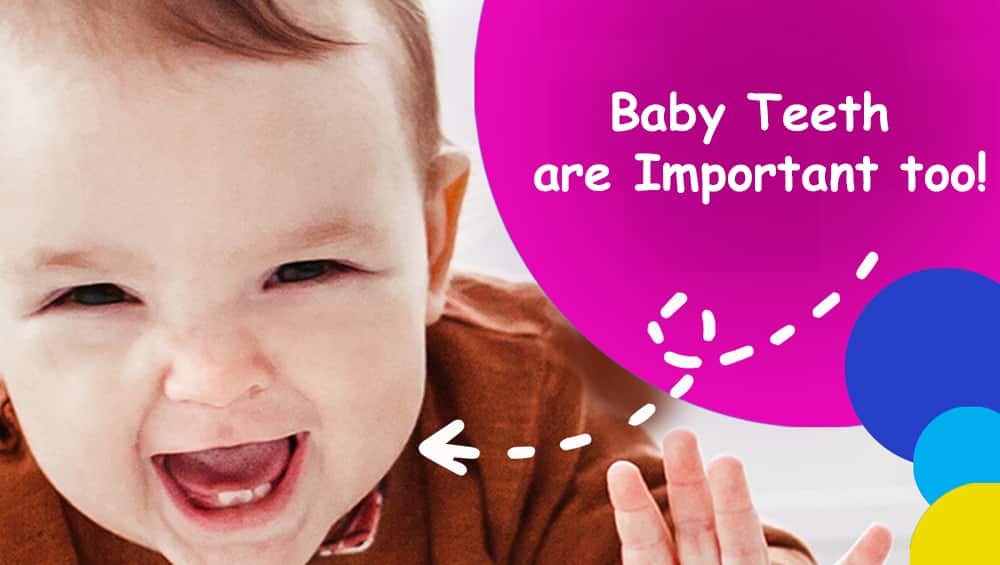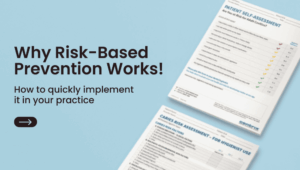
Our Prevention for Life® program is about getting patients through every stage of life with a healthy smile. To achieve this goal, we remind dental professionals that preventative procedures should start with the first baby tooth. Although many believe children don’t need to see a dentist until toddlerhood, the first dental visit should happen much sooner as even very young children can experience dental disease that, if left untreated, can cause major damage in childhood years and beyond. 1 of 5 children aged 5 to 11 years have at least one untreated, decayed tooth. The good news is that caries is preventable and can be managed with the help and care of a dental professional. Therefore, parents should be encouraged to visit the dentist with their babies as soon as they see the first baby tooth erupt.
Donna Brogan, RDH, BS, discusses the importance of first teeth and what impact first dental visits can have on the oral health of a child:
Many dental professionals are under the erroneous impression that a child should see a dentist by their 3rd birthday; this guideline is outdated. The American Academy of Pediatric Dentists recommends infants see a pediatric dentist when the first tooth appears, or no later than his/her first birthday. At this visit, the child’s risk will be determined and proper recall length will be established. Factors such as diet, fluoride exposure and parents’ dental health will be researched. The parents will also receive education in developmental milestones, the importance of baby teeth, diet, and oral habits and the child will likely receive a fluoride varnish treatment.
Most parents are unaware that cavities are a transmissible disease and can be passed to the infant. If the mother or father have had a cavity in the last two years they have a bacterial imbalance and are likely to pass the harmful oral bacteria on to the child. This is just one of several reasons I share with parents that U.S. Preventive Services Task Force (USPSTF) “recommends that primary care clinicians apply fluoride varnish to the primary teeth of all infants and children starting at the age of primary tooth eruption… Research shows that providing fluoride varnish at 6 months instead of waiting until 24 months significantly reduced caries exposure and restorative costs.”1
The health of baby teeth is important for many reasons. Decay and loss of baby teeth can lead to pain, difficulty chewing or speaking, problems with social interaction and self-esteem issues. They also aid in forming a path of eruption that permanent teeth follow. According to the CDC, “Tooth decay is one of the most common chronic conditions of childhood in the United States. About 1 of 5 (20%) children aged 5 to 11 years have at least one untreated decayed tooth.” 2
Cavities can spread easily due to the enamel being thinner on primary teeth. When this happens, children will experience pain due to the pulp becoming infected and in some cases this can cause facial infections. When teeth are extracted, teeth tend to shift resulting in ortho complications because of limited space for permanent teeth to erupt.
As a result, I tell my patients’ parents that prevention matters! Preventive treatments are based on what is in the best interest of the patient. According to the AAPD, children at moderate caries risk should receive a professional fluoride treatment at least every 6 months; those with high caries risk should receive greater frequency of professional fluoride applications (ie, every 3-6 months).3 We know that caries is a preventable disease. Research shows that fluoride varnish can prevent about one-third of decay in the primary teeth.” 2
Try FluoroDose, our award-winning fluoride varnish loved by even the youngest of patients for its great taste and feel!
To learn more about Prevention for Life®, our program to combat caries at any age (even in babies!) with the appropriate risk assessment tools to help you gain patient (and parent) acceptance, visit our dedicated prevention-focused website!
For more information on these or any of the Centrix line of products, visit www.centrixdental.com or call 800.235-5862 to speak to a product specialist.
1. www.uspreventiveservicestaskforce.org
2. www.cdc.gov/OralHealth/children_adults/child.htm
3. https://www.aapd.org/resources/parent/
Photo credit: Freepik @freepic.diller
Boost Your Expertise with Our FREE Lunch & Learn Programs!
Join our engaging Lunch & Learn sessions and take your dental skills to the next level. Enjoy a complimentary meal while learning from experts about evidence-based solutions, prevention, restorative procedures, and more. Enhance your practice and patient outcomes with our comprehensive courses.
Share
You Might Also Like...

Why Risk-Based Prevention Works – And How to Implement It Fast
Is your practice using a risk-based prevention protocol? If not, it’s time to change – Prevention for Life makes it easy!

Register Now! A Must-Watch Webinar for Those Who Still ‘Watch-and-Wait’
It’s time to stop watching and start preventing. Register for FREE CE webinar and learn how to take a more active role in your patients’ care.

How Prevention Programs Drive Loyalty and Long-Term Patient Value
Patient loyalty is not a guarantee – Prevention for Life helps build lasting relationships between dental teams and their patents.


